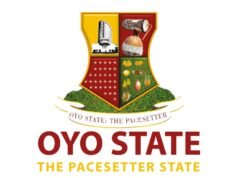Students with ADHD often face unique challenges in the classroom, but they can be just as successful as their peers with the right support and resources. One such resource is a fully funded scholarship.
Scholarships for students with ADHD can help offset the costs of tuition, books, and other school expenses, making it easier for these students to focus on their studies. These scholarships can also help to reduce the financial stress that often accompanies a diagnosis of ADHD. In addition to financial assistance, these scholarships can also provide much-needed support and encouragement.
In this blog post, we will dig into comprehensive scholarships for students with ADHD.
Allegra Ford Thomas Scholarship
Table of Contents
The Allegra Ford Thomas Scholarship is a unique financial aid opportunity designed to provide support to high school seniors diagnosed with a learning disability (LD) and/or ADHD. This one-time award of $2,500 is designed with a particular group of students in mind: those who have decided to pursue higher education through avenues other than the traditional four-year college or university.
Eligibility
To be eligible for the Allegra Ford Thomas Scholarship, applicants must meet the following criteria:
- Be a graduating high school senior who will be attending a two-year community college, vocational/technical training program, or specialized program for students with learning disabilities.
- Have a documented learning disability, such as dyslexia, dysgraphia, dyscalculia, or ADHD.
- Demonstrate financial need.
- Be a United States citizen.
Award Amount
Recipients of the Allegra Ford Thomas Scholarship receive $5,000 per year for up to four years to help cover the cost of tuition, fees, books, and other educational expenses.
Application Process
Interested students must complete the scholarship application, which typically includes providing personal information, documentation of their learning disability, academic transcripts, letters of recommendation, and a personal essay. The application deadline and requirements may vary from year to year, so applicants should carefully review the application guidelines provided by the NCLD.
Overall, the Allegra Ford Thomas Scholarship is more than just financial support—it’s a testament to the belief that students with LD and/or ADHD have the potential to achieve their academic dreams, regardless of the path they choose. Through this scholarship, the barriers to higher education can be lowered, enabling students to focus on their academic pursuits without the weight of financial stress.
Read Also: Fully Funded Uruguay Scholarships 2024/2025
Gabriel Martin Memorial Annual Scholarship
Another valuable scholarship opportunity for students with ADHD is the Gabriel Martin Memorial Annual Scholarship. Specifically intended for college-bound seniors who have a documented learning disability or ADHD, this scholarship recognizes the persistent determination and commitment required by these students to excel in an academic setting.
Eligibility:
- Open to high school juniors or seniors.
- Must have a medical condition, such as asthma.
- Demonstrate financial need.
Benefits:
- Awards $5,000 annually.
- Supports educational expenses.
Application Process:
- Requires an essay or portfolio highlighting the impact of the medical condition on life and future goals.
- Specific deadlines and submission instructions may vary, so research thoroughly.
Selection Criteria:
- Academic merit.
- Leadership potential.
- Commitment to the Christian faith and the mission of the James River Church (if applicable).
- Strength of essay or portfolio submission.
The Gabriel Martin Memorial Annual Scholarship, therefore, not only offers financial assistance to college-bound students with ADHD or a learning disability but also celebrates their courage, resilience, and determination. It’s a testament to the belief that despite the challenges, these students have the ability to excel in their chosen academic field and make significant contributions to society.
NAJA Graduate Scholarship Program
The National Association of Junior Auxiliaries (NAJA) Graduate Scholarship Program offers an avenue for financial assistance tailored to those students in the pursuit of postgraduate studies. Particularly, this program is designed for students intending to specialize in fields that directly address the special needs of children and youth.
Eligibility:
- Be a U.S. citizen and a permanent resident of one of the seven states with NAJA chapters: Alabama, Arkansas, Florida, Louisiana, Mississippi, Missouri, and Tennessee.
- Be working in or planning to work directly with children.
- Be pursuing a one-year graduate-level program in a field related to the special needs of children and youth, such as counseling, psychology, mental health, special education, speech pathology, exceptional children, remedial skills development, hearing impaired, and gifted & talented.
- Demonstrate financial need.
Benefits:
- Awards range from $1,000 to $5,000 per year.
- Scholarship funds can be used for tuition, fees, books, and other education-related expenses.
- Recipients may reapply for additional funding if they continue to meet eligibility requirements and fulfill program agreements.
Application Process:
- Applications are typically accepted once a year, with deadlines falling in February or March.
- The application process involves submitting an online application form, transcripts, proof of residency, letters of recommendation, and a personal essay.
- Shortlisted candidates may be invited for an interview.
However, it’s important to note that while the NAJA Graduate Scholarship Program can provide a significant financial boost, it’s not merely about monetary support. Just as crucially, it represents a vote of confidence in the recipient. The scholarship is a testament to the student’s commitment to their field of study and their potential to make a real, tangible difference in the lives of children and youth with special needs.
FAQS
Is there a scholarship for ADHD in Canada?
Yes, there are scholarships available in Canada that may be applicable to individuals with ADHD. While there may not be specific scholarships exclusively for ADHD, there are general scholarships and financial aid programs offered by various organizations, universities, and government agencies that support students with disabilities, including ADHD. Examples include the Canada Student Grants Program and scholarships offered by the Learning Disabilities Association of Canada.
What college degree is best for ADHD?
There isn’t a specific college degree that is universally considered best for individuals with ADHD, as it ultimately depends on individual interests, strengths, and career goals. However, some degree programs may be particularly well-suited for individuals with ADHD, such as those in fields that allow for hands-on learning, creativity, and flexibility. Examples include art and design, entrepreneurship, computer science, and certain healthcare professions.
Is ADHD considered a learning disability?
Yes, ADHD (Attention Deficit Hyperactivity Disorder) is considered a neurodevelopmental disorder that can affect learning and behavior. It is often classified as a learning disability, along with conditions such as dyslexia, dyscalculia, and auditory processing disorder. ADHD can impact attention, concentration, impulse control, and executive functioning, which may pose challenges in academic and other settings.
Is ADHD considered to be a disability?
Yes, ADHD is considered a disability under various laws and regulations, including the Americans with Disabilities Act (ADA) in the United States and the Canadian Human Rights Act in Canada. Individuals with ADHD may be eligible for accommodations and support services in educational, workplace, and other settings to help mitigate the impact of their symptoms and facilitate success.
What jobs does ADHD disqualify you from?
Having ADHD does not inherently disqualify someone from pursuing any particular job or career. However, certain jobs or professions may pose greater challenges for individuals with ADHD, depending on the nature of their symptoms and the specific job requirements. Jobs that require sustained attention to detail, strict adherence to deadlines, and minimal distractions may be more challenging for individuals with ADHD. However, many individuals with ADHD thrive in careers that allow for creativity, flexibility, problem-solving, and variety. With proper support, accommodations, and strategies, individuals with ADHD can succeed in a wide range of professions.
Conclusion
In conclusion, while ADHD can be a challenging condition to deal with, there are a number of resources available to help students with this disorder achieve success. Scholarships can be an essential part of this equation, providing both financial support and a sense of encouragement.
By accessing these resources, students with ADHD can find the support they need to thrive in their academic pursuits. In addition to scholarships, there are also a number of other resources that can be helpful, such as counseling, medication, and strategies for coping with ADHD. With the right combination of these resources, students with ADHD can reach their full potential.









